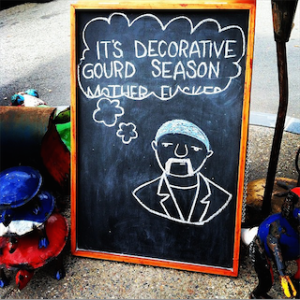 There’s been some discussion today about a new app called Clean Reader, which will allow you to read your favorite ebooks with the profanity edited out. Not surprisingly, some authors are vehemently against the idea, seeing it as, at best, censorship of their work, and at worst, unlawful editing of a copyrighted text. Others point out that the app doesn’t actually change the text in any way; it simply blanks out the offending word, and the app user has the choice to read the uncensored book if they want. The Clean Reader blog says that customers, having paid for a book, should be allowed to consume it however they want.
There’s been some discussion today about a new app called Clean Reader, which will allow you to read your favorite ebooks with the profanity edited out. Not surprisingly, some authors are vehemently against the idea, seeing it as, at best, censorship of their work, and at worst, unlawful editing of a copyrighted text. Others point out that the app doesn’t actually change the text in any way; it simply blanks out the offending word, and the app user has the choice to read the uncensored book if they want. The Clean Reader blog says that customers, having paid for a book, should be allowed to consume it however they want.
It reminds me of the controversy a few years back when an Alabama publishing company decided to replace the n-word with ‘slave’ in their reprint of Mark Twain’s Huckleberry Finn. The publishing company argued that some people can’t get past the word in order to grapple with the actual issues of the story, and their edition allowed more schools to add the books to their summer reading lists. Critics pointed out that making the book more palatable was missing the point. Pretending people didn’t use that word meant ignoring the very reason the word is considered harmful today.
It’s twee to say that good writers don’t need to use profanity, or that clean writing is quality writing. Authors use words for specific effects, and the words people use can tell a lot about character and setting and class. Anyone who has seen movies edited for television can understand the comical effect that the sanitized language can have on a story. Words are tools to be used, and there are some effects that can only be achieved with the use of profanity.
On the other hand, I can see good reason why people should be allowed to convert the media they consume into a more accessible format. Many video games have colorblind mode for gamers who wouldn’t be able to distinguish between the default colors of the game. Visually impaired movie viewers can watch movies with audio description tracks that sometimes change dialogue. Abridging stories for audiobook is a common practice. Publishers translate books into other languages to make them available to larger audiences. The Harry Potter series was edited to make it less British for American readers.
A dislike of profanity doesn’t exactly constitute a disability, but I can appreciate that some people have a far greater distaste for dirty words than I do. If they prefer to read bowdlerized versions of their favorite books, even knowing that the edited content might be inferior or even incomprehensible, then that’s their choice. Perhaps Clean Reader should allow authors to opt out of having their text available, and let readers read the rest however they like.
Further reading:
Joanne Harris’s post, “An Email from Clean Reader”
Chuck Wendig’s post, “Fuck You, Clean Reader: Authorial Consent Matters“